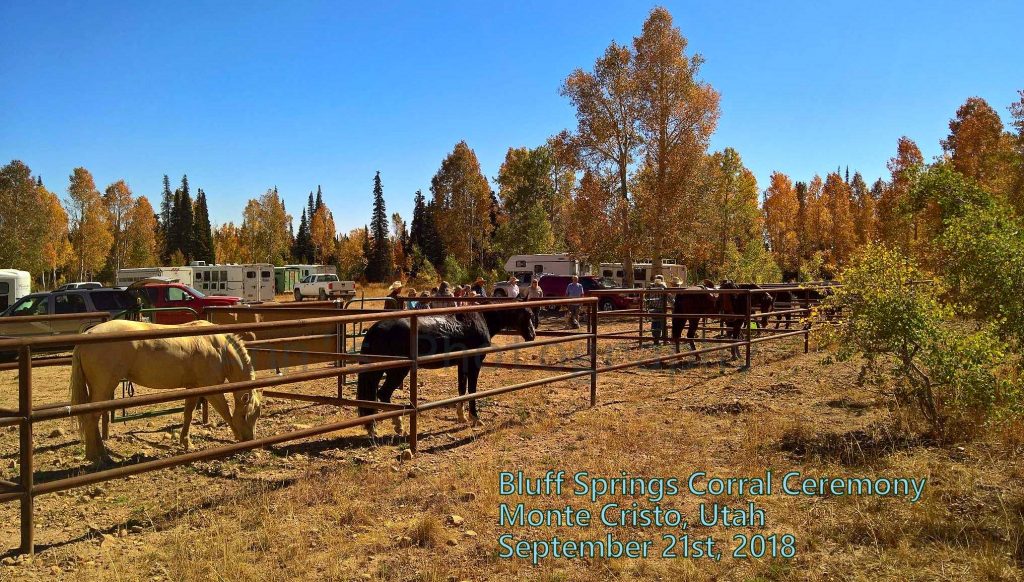U.S. Forest Service Guidance on Use of Equestrian Campsites
At the prompting of BCHA and allies that include the American Horse Council, last month the Forest Service national office circulated a memo to all national forests and national grasslands titled “Recommended Best Practices for Managing Stock Use Sites at Developed Campgrounds“.

We encourage BCHA chapters and volunteers to review this memo and, importantly, to use it as a reason to schedule a meeting with personnel at your local national forest to assist you to achieve the following objectives:
- Ensure the memo was received by the local Forest Service office,
- Discuss with forest staff the magnitude of the problem locally and the memo’s relevancy and implications, and
- Come to agreement on what adjustments in the management of equestrian campsites within Forest Service jurisdiction might be implemented in order to communicate to the public the need to prioritize equestrian campsites for use by parties with stock.
Background
Last year, BCHA approached the Forest Service regarding what options exist to minimize the extent to which parties without stock were occupying designated equestrian campsites throughout the National Forest System. We pointed out that agency policy for developed campgrounds prohibits parties from “Bringing in or possessing a saddle, pack or draft animal except as authorized by posted instructions” (Code of Federal Regulations, Section 36, subsection 261.16(l)). That is, parties with stock are prohibited by law from occupying Forest Service campsites that are not designated for equestrian use.
Yet, there is no corresponding regulation that prevents parties without stock from occupying developed equestrian campsites. The problem of occupied horse camps escalated across the nation during the COVID pandemic, when many families and others chose close-to-home vacations in favor of long-distance travel. The Forest Service memo describes well the implications to stock users of this growing problem.
Horse Camp Incident Report Form
BCHA and its allies developed a Horse Camp Incident Report form for members to capture and record incidents where parties without stock are occupying Forest Service equestrian campsites. The purpose of the form is to support BCHA should we need to make the case for new regulations to prevent parties without stock from occupying equestrian campsites. BCHA is pleased that the Forest Service issued the aforementioned memo to field staff; it represents a logical first step to apply education to help lessen the problem.
If You Depend on Developed Horse Camps on Public Lands, Please fill out the Incident Report Form
We need help in documenting incidents of parties without stock occupying developed horse camps in your State to push for new rules in the use of public lands horse camps.
We don’t know that education alone will prove sufficient to solve the horse camping problem. By collecting your accounts of incidents in the field, we might better document the magnitude and geographic extent of the problem. Consequently, BCHA is relying on its members to provide data from the field of your observations, should we need to promote further solutions.
Special notes:
- Always be courteous to other campground users. It’s likely that any party without stock has occupied an equestrian campsite because regular campsites were already taken or reserved.
- Remember, it’s not illegal for others to camp in an equestrian campsite. Plus, some folks might not know the difference between an equestrian and regular campsites (seriously!) or why their occupancy of an equestrian campsite might force us to travel far distances in order to find a legal campsite—if not forced to return home, an outing ruined.
- If you end up speaking with such parties, use these talking points to educate them about the scarcity of legal campsites for equestrian use and what happens when parties without stock occupy equestrian campsites.

